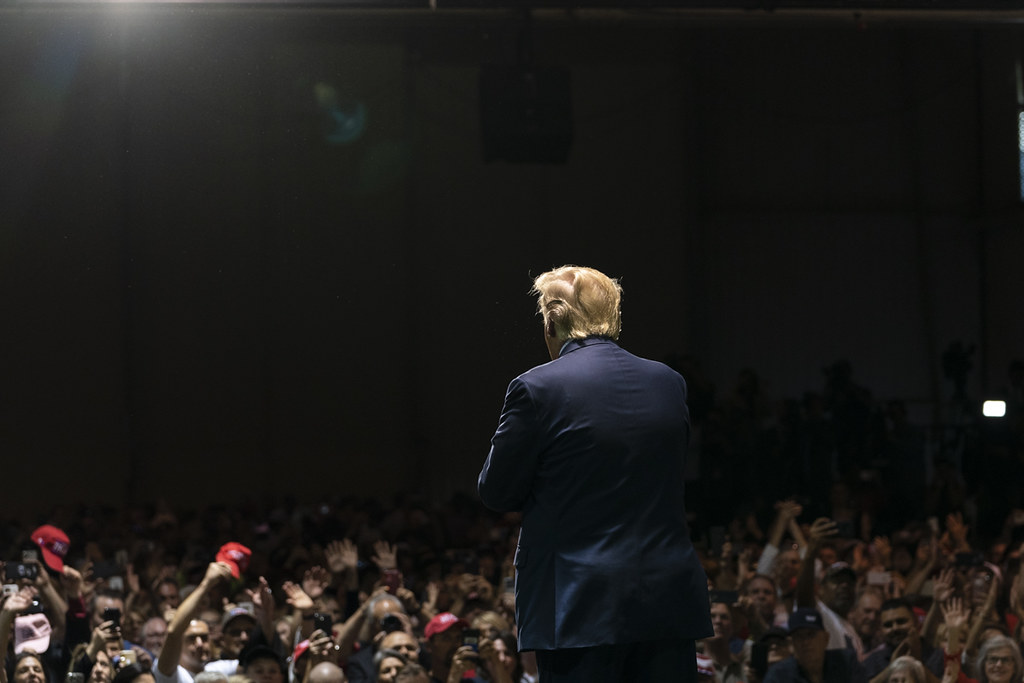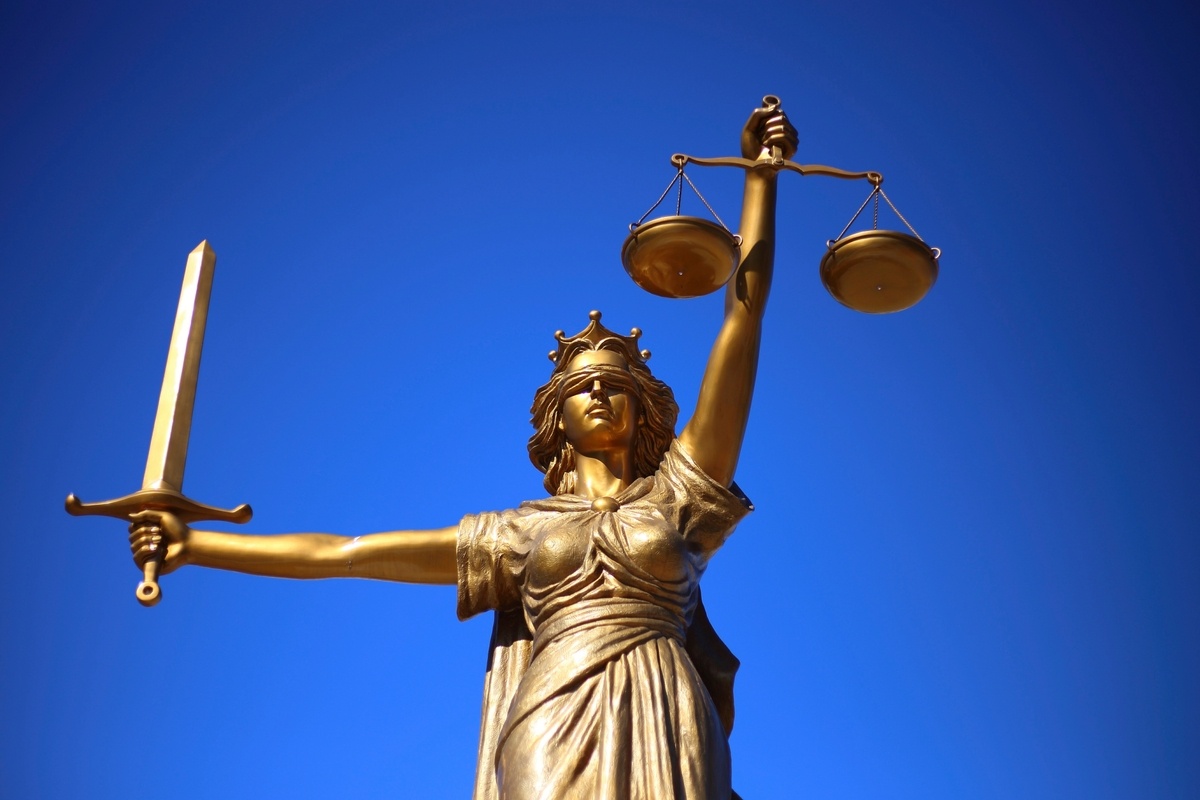How to Reform the Pardon Power
Congress can prevent or deter the most egregious abuses of the pardon power, while encouraging future presidents to adhere more closely to norms of process and restraint.

President Trump is reportedly “obsessed” with the pardon power, which he apparently understands to be the unbounded constitutional authority to dispense forgiveness as he pleases. In his recent rash of 11 pardons and commutations, Trump dispensed with the Department of Justice process for vetting pardon applications and relied instead on the advice of friends and allies, and on his own judgments about redressing “unfairness.” He has also argued he has an “absolute right to PARDON myself” (while at the same time denying the need to do so). Trump revels in the belief that his pardon and commutation decisions are his alone: His critics might not like his choices, but they have to live with them.
Trump is not alone in his sweeping view of the pardon power. Decades ago, the Department of Justice advised Congress that “[i]n the exercise of the pardoning power, the president is amenable only to the dictates of his own conscience, unhampered and uncontrolled by any person or branch of government.” Woodrow Wilson’s attorney general framed the power in similarly grandiose terms, as “not subject to the control or supervision of anyone.” The courts have seemingly endorsed these constitutional judgments, referring to the pardon power as “unlimited” and deeming Congress unable in any way to “limit the effect of [a] pardon, nor exclude from its exercise any class of offenders.”
So, it appears, lawmakers unhappy with grants of clemency are left to voice dissatisfaction and to press the president to explain. And in the past, that is what they have done. After pardoning Richard Nixon, President Gerald Ford made an extraordinary appearance on the Hill to defend his decision. The Senate and House inquired into Bill Clinton’s history of controversial pardons and, in some cases, voted resolutions of bipartisan disapproval. But, barring a constitutional amendment, many people appear to believe that Congress can do nothing more to regulate the president’s “absolute” pardon power.
We disagree. As we discuss in detail in a forthcoming book on institutional reforms of the presidency, there are limits Congress may and should impose on at least some exercises of the pardon power. And by prescribing those limits, the legislature can prevent or deter the most egregious abuses, while encouraging future presidents to adhere more closely to norms of process and restraint.
Begin with the constitutional text, which grants presidents the “Power to grant reprieves and Pardons for Offenses against the United States, except in Cases of Impeachment.” The power covers only federal offenses and excludes the ability to pardon away an impeachment. But these are not the only limits.
A pardon or commutation may be “absolute” for the beneficiary. But it would not in any way afford the president, as the grantor, immunity from commission of a crime in connection with granting a pardon, nor would it cover any such separate crime committed by the grantee. Congress could, for example, make it a crime for the president and the grantee to engage in a bribery scheme in which the grantee makes a personal payment or campaign contribution as part of an explicit quid pro quo arrangement. The president’s subsequent pardon or commutation would remain fully in effect for the offense pardoned, in accordance with the Pardon Clause. But the law would apply to the independent criminal acts committed by the president and the grantee in the course of reaching an illegal agreement about the terms on which a pardon would be granted. Congress can similarly criminalize the use of the pardon to undermine a judicial proceeding, which the president might do by offering it as a means of inducing false testimony.
It is unclear whether the current obstruction of justice and anti-bribery statutes already criminalize these and related presidential acts. To resolve any doubts, Congress should make it an express crime for a president to offer to sell, or to sell, a pardon for personal financial benefit or a campaign contribution, or for the benefit of an immediate family member—or to use a pardon, or offer one, in a corrupt scheme to obstruct a judicial proceeding.
Congress should also make clear that a self-pardon is not allowed and cannot be the basis for immunity from federal criminal investigation or prosecution. The matter is legally unsettled. No president has ever tried to pardon himself, neither constitutional text nor judicial opinions speak overtly to the issue, and scholars are sharply divided.
There are cross-cutting but inclusive hints in the Constitution. On the one hand, the express limits on the pardon power (to federal crimes and excluding impeachment) might imply that there are no other limits, and the exception for impeachment might imply, as Andrew McCarthy noted, that “the Framers understood they were permitting the president to pardon himself” for crimes. On the other hand, Article I of the Constitution states that a person convicted after impeachment “shall nevertheless” be subject to a subsequent criminal trial; the Article II specification that the president has power to “grant [a] pardon” might imply a bilateral relationship that is absent from self-pardons; and the Take Care Clause might preclude the president from excluding himself from the reach of law enforcement. This latter idea might have been what the Office of Legal Counsel meant when in 1974 it wrote, sententiously and with little reasoning, that self-pardons would “seem” to be disallowed “[u]nder the fundamental rule that no one may be a judge in his own case.”
In the face of this uncertainty, Congress’s constitutional judgment can matter a lot, both in informing subsequent judicial review of a self-pardon and in giving a president pause about issuing one in the first place. And, of course, any president is on notice that since 1974 the official Justice Department view has been that self-pardons are constitutionally problematic.
These proposed reforms are not ruled out by the strong formulations of the pardon power found in some old Supreme Court cases. Key cases often cited for the proposition that the pardon power is absolute were resolved on other grounds and are thus technically not binding precedent. Other decisions contained sweeping statements of presidential power that went beyond what was required to decide the particular matter before the Supreme Court. Congress has much more room to regulate abuses of the pardon power than is commonly assumed.
The proposed reform legislation will not solve every form of pardon abuse. It cannot stop a president from pardoning family members, friends or allies—a practice that did not start with Trump. But it can lay down a marker that the pardon power is not “absolute.” And it could be a tonic for crumbling norms of restraint. It is not healthy for a president, especially the current one, to think of any power as absolute except for possible political penalties. A president who understands that certain pardons or commutations implicate criminal liability may be more inclined to turn to legal advisers in cases that present the reality or appearance of self-dealing. And perhaps more importantly, the legal advisers the president turns to might be more constrained themselves, and constraining of the president, since they will worry more about aiding and abetting presidential crimes.
It might seem fanciful, especially after the Senate acquittal in Trump’s impeachment trial, to believe that the legislation we propose can receive adequate Republican support to overcome a certain veto from this president. This may be so. But it is also true that many Republicans in Congress stood up to the president when he threatened to fire Robert Mueller, and many have voted to oppose the president’s military support to Saudi Arabia for the war in Yemen and any further uses of force against Iran. Trump has issued a steady and increasingly controversial series of pardons, and he has hinted at many more to come. These actions—especially if they cross into the areas described above—threaten core rule-of-law values.
Are there not a few dozen Republicans in Congress committed enough to basic constitutional restraints to criminalize such extreme abuses of presidential power? If not, the enactment of limits on the pardon power should remain one of the action items on an agenda for reform of the presidency after Trump leaves the scene.





.jpg?sfvrsn=d27bd863_5)
